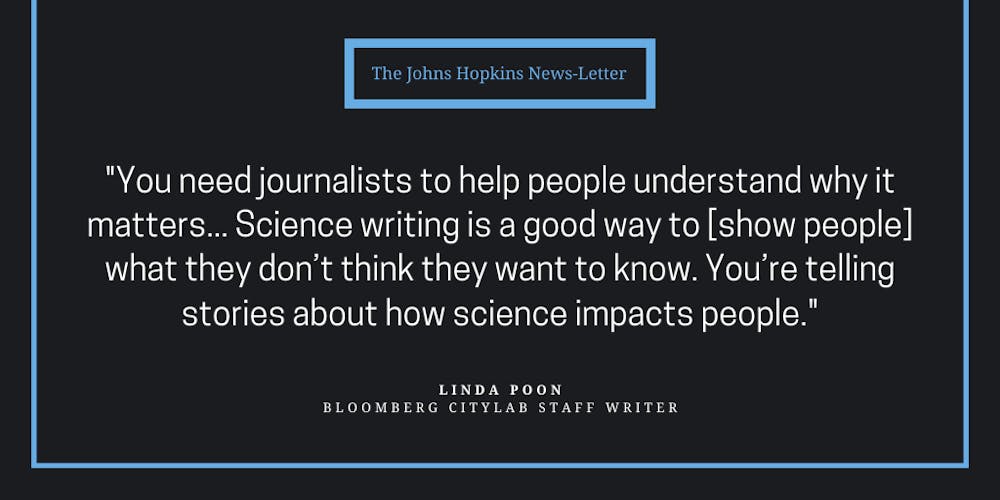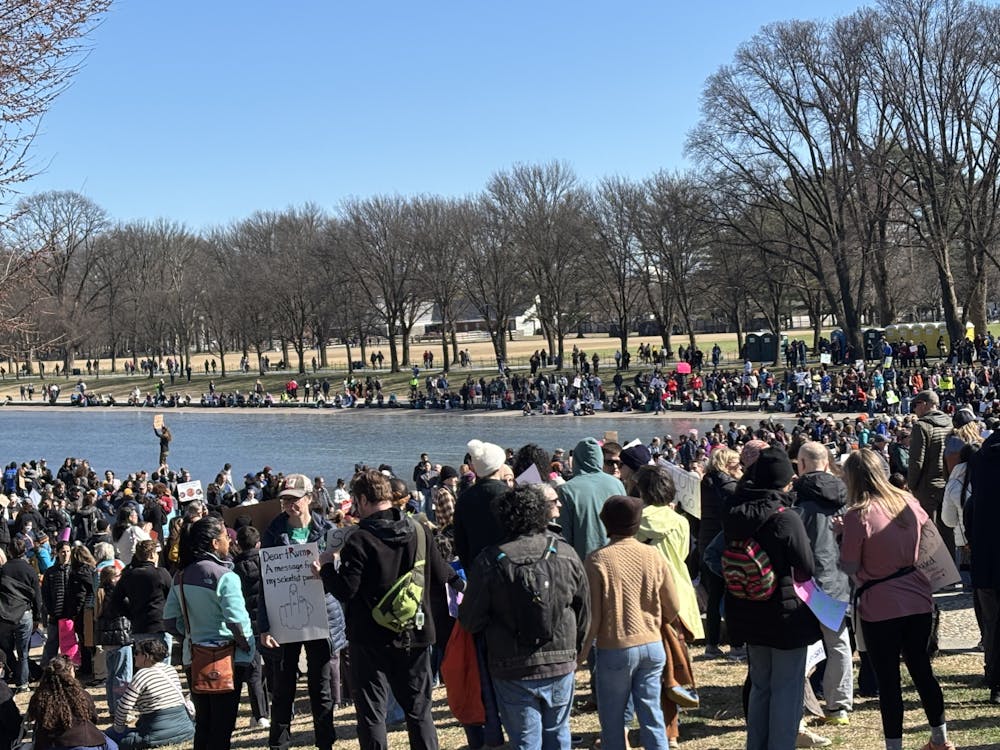Three science writers discussed their careers at the Science Writing Roundtable, sponsored by the program in Medicine, Science, and the Humanities (MSH), in Mergenthaler Hall on April 11.
The event was moderated by Alicia Puglionesi, a published writer and lecturer in the MSH department. The panelists included Sabrina Imbler, a current staff writer at Defector; Jessica Hester, a freelance journalist and MSH doctoral student at Hopkins; and Linda Poon, a staff writer at Bloomberg CityLab.
At the event, all three writers traced their career paths and shared common challenges that science writers might face, from pitching stories to editors, fact-checking difficult sources and making science stories appealing to a broader range of audiences.
Hester explained why she thought this event would be helpful for Hopkins affiliates in an interview with The News-Letter, noting the importance of quality science writing in the wake of the COVID-19 pandemic.
“Science has always been profoundly politicized, but I think this is a time when the average reader is increasingly attuned to that fact,” she said. “Helping people understand that they could ask questions like science reporters do or pursue research that interests them will hopefully work toward dispelling the idea that science is not grounded in fact.”
At the beginning of the event, the panelists shared their initial road to science writing. All three speakers had been through multiple jobs and internships before ending up at their current positions.
Imbler discovered that they were interested in writing about animals while working on climate change reporting.
“I sort of had this eureka moment of like, ‘Oh, my favorite thing in the whole world has been the ocean, and I've never thought about that as something that I could necessarily write about for my job,’” Imbler said. “After that, I just tried to continue getting jobs that brought me closer and closer to my dream of writing about the natural world and writing about the things I've always loved.”
One audience member asked the panelists about how they handle writing for a variety of audiences, especially when scientific stories may have difficulty reaching certain readers.
Hester responded with a discussion of her experience coming from a creative writing background, where she was encouraged to cultivate a distinct style, to journalism, where she was often forced to make her style more flexible.
“One of the things that was sort of dizzying when I started out was being asked to ventriloquize so many different institutional voices,” she said. “Even though I would read these clips at the end of the day and think ‘these don’t sound like me,’ I think the writing exercise is really useful.”
In an interview with The News-Letter, Poon expanded on her belief that science writers are important in helping audiences care about the science around them.
“You need journalists to help people understand why it matters,” she said. “Science writing is a good way to [show people] what they don’t think they want to know. You’re telling stories about how science impacts people.”
As a student in the MSH capstone class, junior Amira Rady got to have a conversation with the panelists in class prior to the roundtable discussion. She noted how each panelist had a distinct path and passion for science writing in an interview with The News-Letter.
“Attending the event allowed me to witness the more intimate side of science writing and how one can find their voice as a journalist,” she said. “I appreciated that each of the panelists had incredibly unique stories.”

















